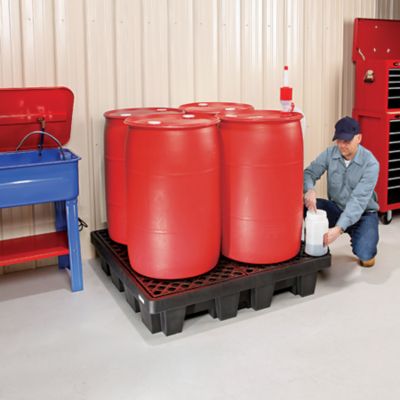The International Organisation for Standardisation (ISO) has developed, with the participation of industry experts worldwide, a series of standards re

ISO 14001 standards were designed to be very broad in nature, so that they can be adapted to any organisation. As such, they do not provide specific environmental goals; they are merely meant to help the organisation establish their own EMS in a standardised method.
The standards require organisations to establish and maintain a program that effectively manages environmental issues, provides and documents training of all personnel whose work may significantly affect the environment and establishes procedures for prevention of and response to accidents and emergency situations, which could impact the environment.
Commitment to comply
Among other elements, ISO 14001 requires that the organisation be aware of, and comply with, all relevant regulations governing their wastes. Emergency response procedures must be documented, practiced, reviewed and revised periodically.
Section 4.4.7 (Emergency preparedness and response) of ISO 14001 requires: “The organization shall establish, implement and maintain a procedure(s) to identify potential emergency situations and potential accidents that can have an impact(s) on the environment and how it will respond to them.
The organization shall respond to actual emergency situations and accidents and prevent or mitigate associated adverse environmental impacts.”
Spill response kits are one method of stocking the absorbent supplies necessary to respond to accidental releases such as container overfills, pipeline ruptures, tank failures or any other spills that may occur at a facility and potentially cause harm to the environment. In addition to absorbents, dikes and drain covers are also available to stop spills that could enter drains or sensitive areas.
Proper use of spill response materials by trained responders can help prevent spills from impacting the environment outside a fixed facility or mitigate the impact of a spill outside the facility’s walls. As part of an organisation’s response plans, space should be designated to store spill kits or suitable amounts of absorbents near areas where liquids are handled, used, or stored.
Safe storage
Proper storage of industrial liquids on spill containment devices can prevent environmental damage caused by accidental releases from the containers. Spill containment devices can be used in raw material storage areas, laboratories, product development areas, on the manufacturing floor, as well as at waste collection and storage areas in nearly any industrial facility.
Section 4.3.1 (Planning – Environmental Aspects) of ISO 14001 requires: “The organization shall establish, implement and maintain a procedure(s)
- to identify the environmental aspects of its activities, products and services within the defined scope of the environmental management system that it can control and those that it can influence taking into account planned or new developments, or new or modified activities, products and services, and
- to determine those aspects that have or can have significant impact(s) on the environment i.e. significant environmental aspects.”
In addition to storage of traditional liquids, special precautions may need to be taken for storage of hazardous materials, such as flammable liquids, corrosives or reactive materials.
Commitment to maintain and improve
Organisations seeking certification must create a set of goals for environmental performance, and work to achieve those goals. Waste minimisation and recycling are areas where a facility can significantly improve their impact on the environment, by reducing the amount of solid waste destined for disposal.
Section 4.3.1 (Planning – Environmental management programmes) requires: ” The organization shall establish, implement and maintain a procedure to:
- identify the environmental aspects of organization’s activities, products and services within the defined scope of EMS, which the organization can control, or those organization can influence taking into account planned, or new developments, or new or modified activities, products and services.
- to determine those environmental aspects of organization identified that have or can have significant impact to the environmental.
Contained absorbents, such as sock and mat products, can help a facility reduce the amount of waste they generate when compared to traditional granular absorbents. Wringers can also help reduce absorbent waste volumes even further.
Colour-coded, sealable, Burpless or Open-Head Drum Funnels can help facilitate a liquid recycling programme, while preventing air emissions or accidental releases from the recycling containers.
The ISO 14000 series of standards can help contribute to making the development, manufacturing, and supply of products and services more efficient, safer, and cleaner. They also make trade between countries easier and fairer by having one set of agreed-upon environmental management standards to work with, rather than burdening exporting firms with conformity to a large number of differing national-level environmental management standards.
Sites who have achieved ISO 14001 certification, as well as those pursuing ISO 14001 certification, are very conscious of their responsibility to the environment. The commitment of these organisations is a beacon to anyone seeking to help preserve and better our environment.
Find out more:
New Pig provide a comprehensive range of Spill Containment products from our online catalogue. Or why not give us a call on 0800 919 900.






COMMENTS